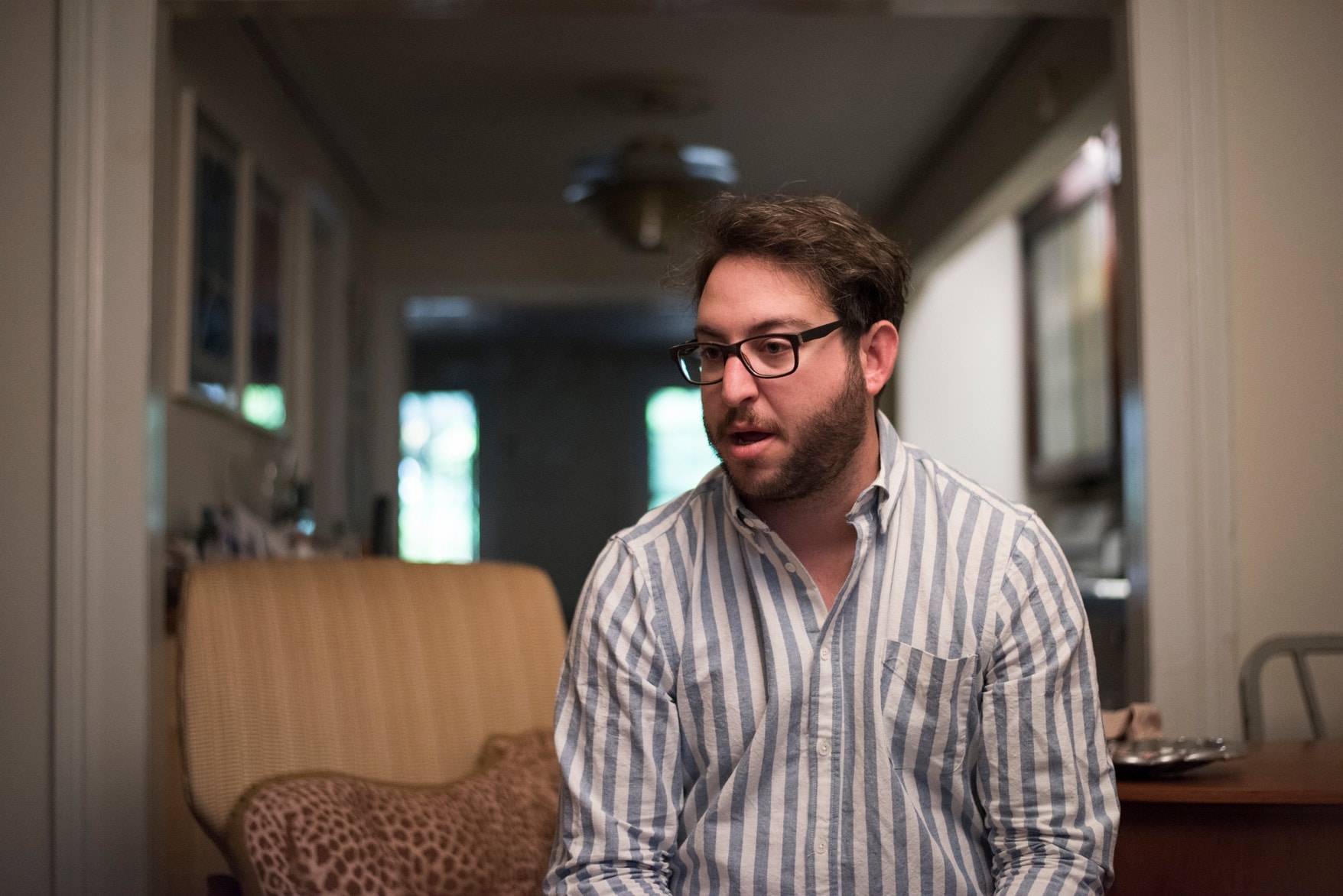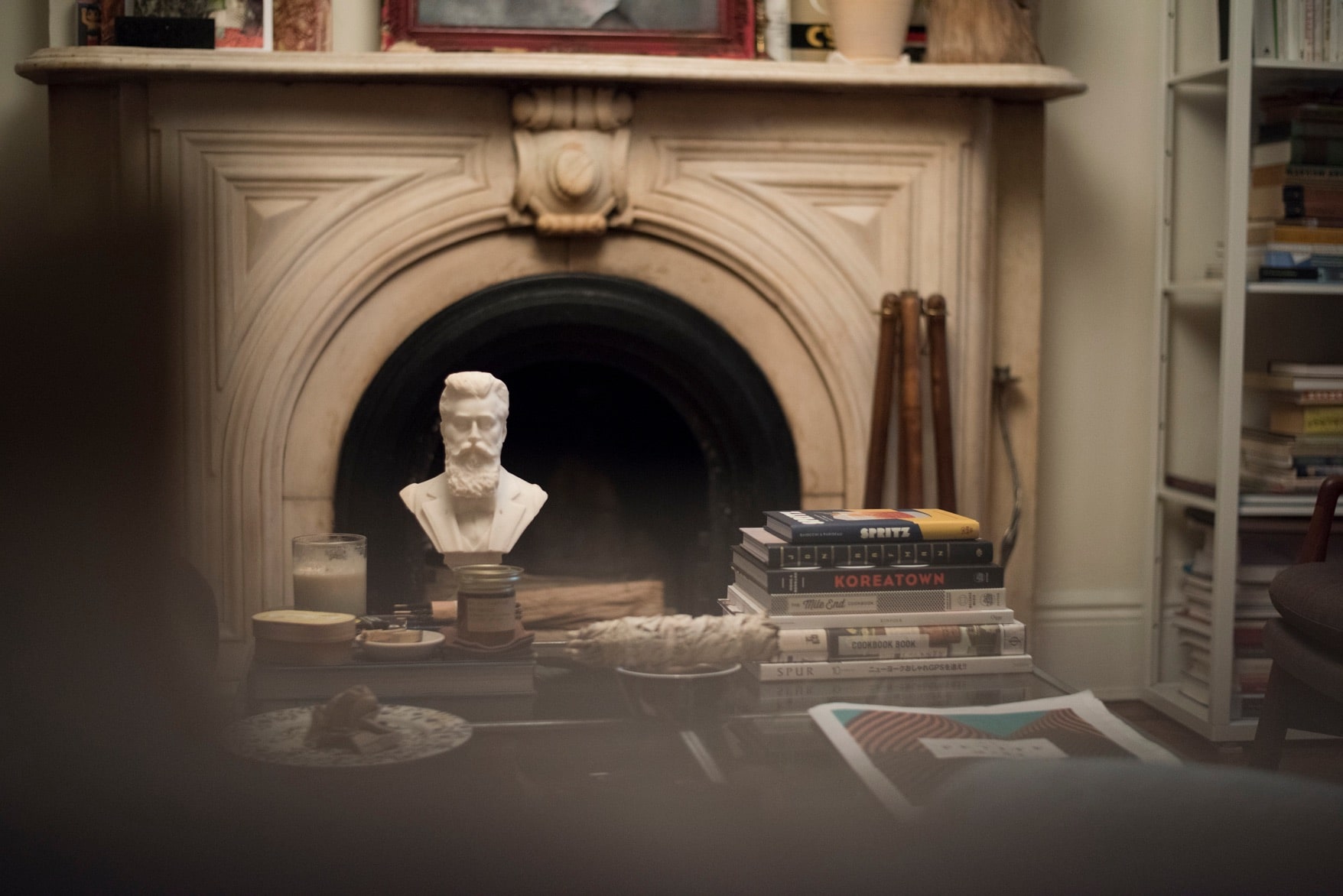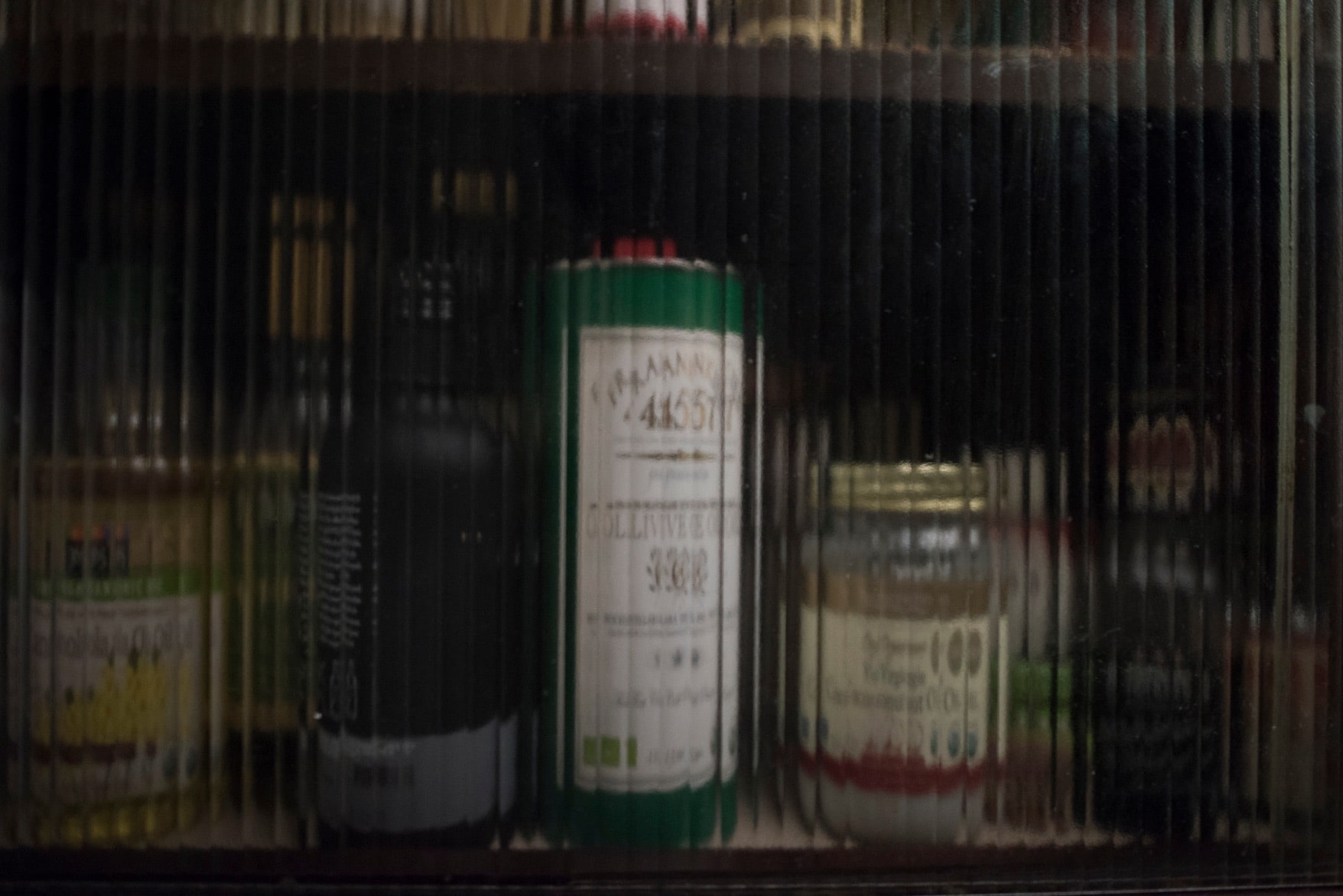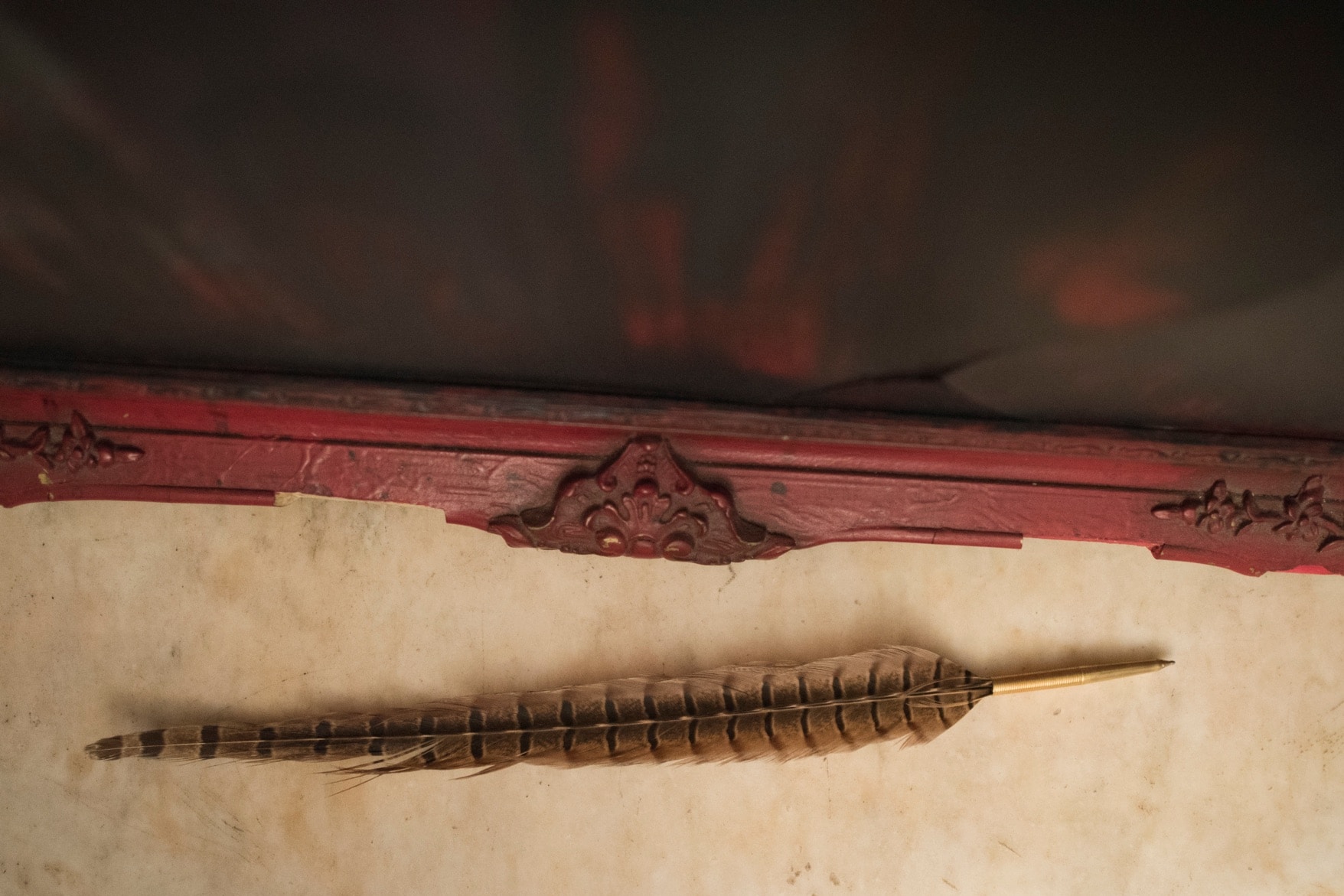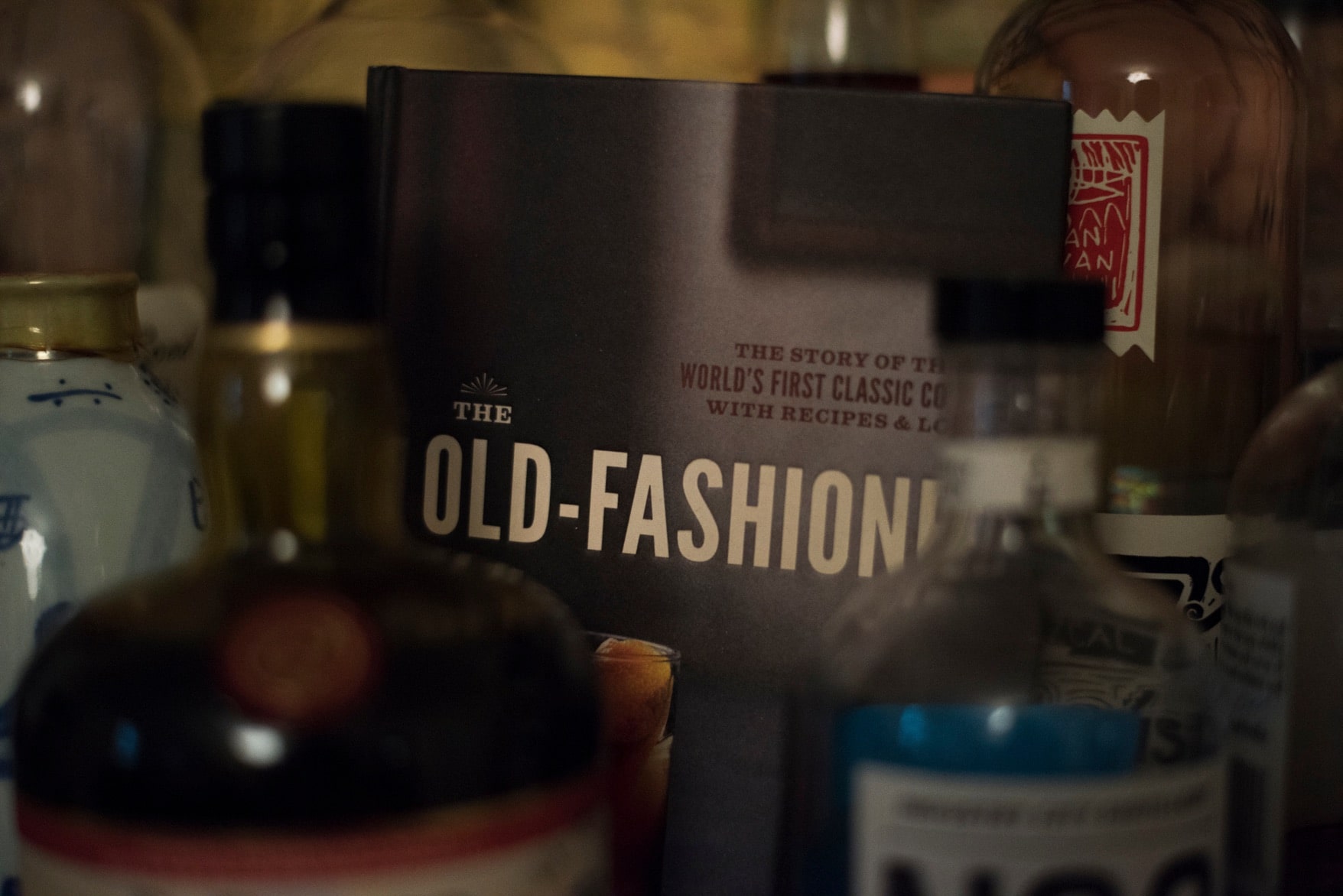Noah, founder of Mile End Deli, Black Seed Bagels, and Grand Army, is the Jewish Willy Wonka, hypnotizing New Yorkers with his dreamy deli meats and delicious breakfast bagels. We tried to avoid drooling as he worked up our appetite with a conversation about what he did (or didn’t) get out of Jewish day school, his career as a young almost-pro hockey player in Montreal, one of his biggest mistakes as a restaurateur, and the real climax of marriage.
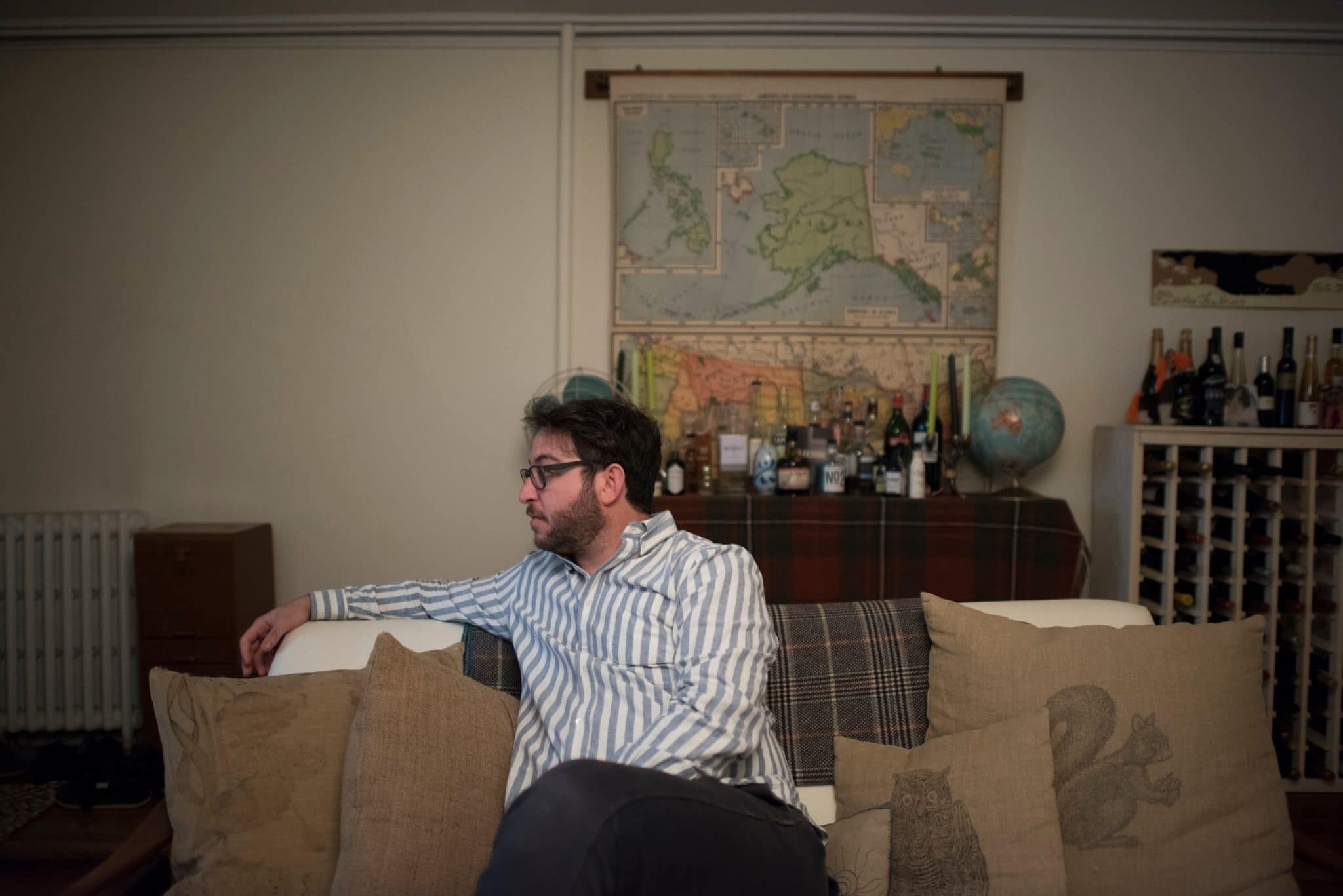
Tell us about your early years.
I grew up middle class in Montreal. My mother was an emergency room nurse and my father sold office equipment. My neighborhood had a cookie cutter, suburban vibe. I went to elementary school at Hebrew Foundation, which was a pretty new Jewish Day School at the time. My sister and I had swimming lessons, and I played hockey and baseball. My parents gave me a lot of opportunities. They would say, “You can’t do that because it’s not a smart idea,” but, beyond that, there weren’t any “no no’s” in the house. I really ran with it, but I wasn’t a wild child.
Something that I think about a lot with my Jewish Day School upbringing is how reality was packaged for us.
I remember the famous handshake between Yitzhak Rabin and Yasser Arafat on the lawn of the White House. School stopped, we all went to the gym to watch it on TV. At the time, I didn’t understand the significance of it. All I knew was that the Palestinians were finally “coming to their senses” and deciding that they had enough of trying to fight Israel and that they were going to make peace. It wasn’t like, “Oh, maybe Israel is coming to its senses.” It was one-sided.
High school was a transition point for me. I wasn’t a bad kid, but I started to realize that I didn’t have to work very hard to get good grades. I was starting to develop a deeper curiosity for things and I discovered music.
In Quebec, people go to a two-year program after high school called CEGEP. I opted out of CEGEP and went to Lawrenceville, a prestigious co-ed boarding school in New Jersey. That really opened me up. “Oh, you’re the Sultan of Brunei’s son. Dad’s coming in on a chopper this afternoon? Cool.” It exposed me to that level of affluence and to a place where less than 10% of the people were Jewish.
I gravitated towards people who were less entitled. Smart was the big thing.
I sustained a pretty bad hockey injury part of the way through my first season at Lawrenceville, which was devastating because I was supposed to show up there, play really well, and get scouted to go play NCAA. That didn’t happen because I wasn’t on the ice.
When I was applying to college, I couldn’t ask my parents to spend $40,000 a year to send me to school when it would cost $1,500 for me to go to McGill. I’ve always been a little strategic, so I said, “I’m going to come back to Montreal, I’m going to go to McGill, buuuut, I would really like to simulate the experience of going to college in another place. So, I don’t want to live at home.” Almost all of my Montreal friends lived at home, at least for some part of college. My idea yielded both an apartment and a car. Independence.
What was your college experience like?
I was lazy about school. I only did the bare minimum to have decent grades. I didn’t have the magic dust quite like I did in high school. I didn’t do something that would give me the foundation to pursue a career in medicine or accounting or finance, which were the typical areas that kids from my background pursued. There I was, studying Political Philosophy with nothing at the end to earn money from. I wanted to explore those ideas. I was very curious. I wasn’t interested in structure.
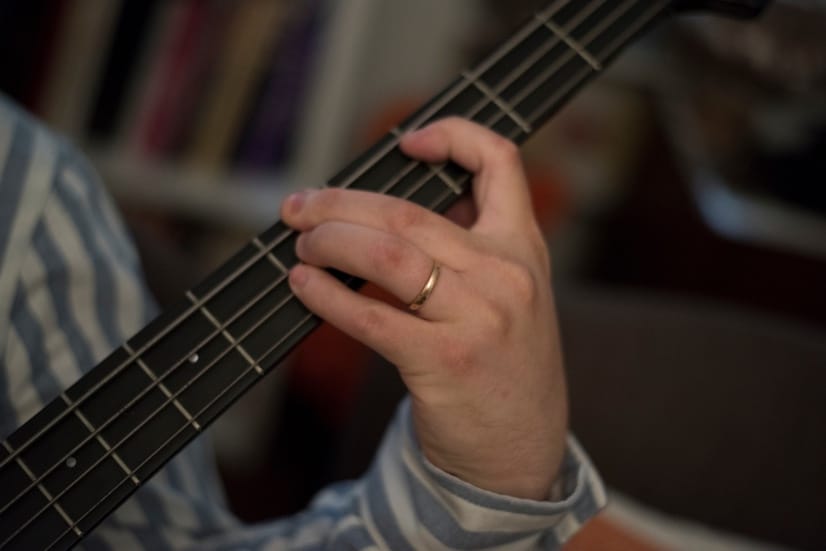
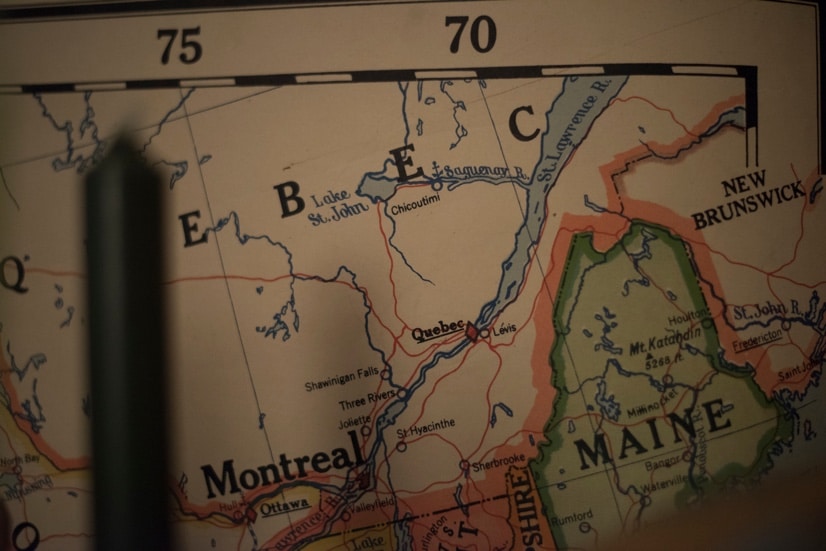
What did you want to be when you grew up?
I went through different phases in my life where I said, “I’m gonna be a fireman” and “I’m gonna be an architect” without really knowing what that meant. I didn’t know what I wanted for a really, really long time. That sentiment is still there. I exist in a state of discovery. Right now, I’m doing food and restaurants and that’s really fun and engaging and it’s grown into a career. I don’t know if I’ll be an entrepreneur forever. It’s burdensome. Some things work and it’s a pain in the ass when they don’t and there’s disappointment.
What have been the best and worst decisions you’ve made in the food business so far?
The best decision I made was to commit myself to something that I am passionate about. It wasn’t just like, “This is a good business decision because this thing’s cheap and people buy it and they value it higher than it really is. Great, The Meatball Shop.”
I’m passionate about the food that I’m serving and it sets me apart from most of the people in the business.
The business hasn’t always operated smoothly. I wanted to have this big, fancy production facility without the need for it. In the end, I realized that we had squandered money on it and we were going to need to raise more to open enough restaurants to make a facility of that size and that capacity worthwhile. So, I diluted my piece of the business. We raised a lot of money from family and friends and we haven’t repaid it, and that’s a burden to carry.
Who do you learn from or look up to?
Maybe this is just mistaken confidence, but I don’t usually consult beyond the experts. I was on my own in the weeks leading up to opening the original Mile End. I had no staff, so I hired friends who had no idea what they were doing, like myself. For the first few years, I felt like an underdog. I didn’t know the business well, I didn’t know that deli sandwiches would be extraordinarily expensive to make, but, Holy Shit, I committed myself to this mission, which is the thing that made us well known.
Why are you passionate about deli?
I grew up with it. It’s the food that, to me, means being Jewish. In 7th grade, my mom let me take the bus with my friends downtown to go to Schwartz’s to get a smoked meat sandwich. That sense of independence is tied so closely to deli food, maybe that’s why it’s meaningful to me. It’s natural human psychology to long for things that are gone. Eating a smoked meat sandwich takes me back to a different time.
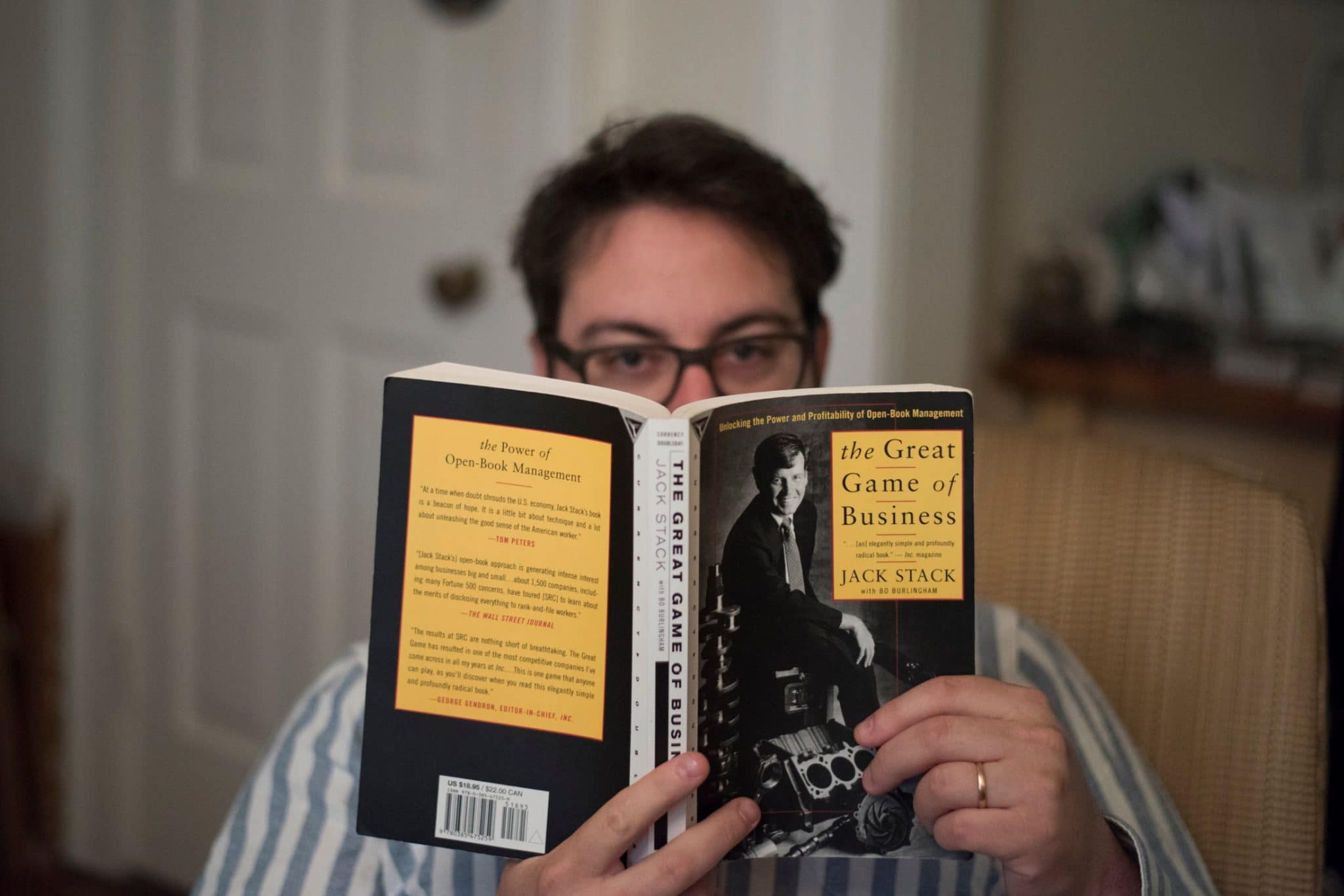
How and when did you meet your wife?
I met Rae toward the end of my first year at McGill. Rae claims that, after she interacted with me for the first time, there was something special. We were debating the existence of God. She came away thinking, “That was a really engaging conversation and that guy is passionate about something.” I came away thinking, “Rae is hot.” We hung out one other time in a bigger group on a Friday night and then she left for the summer to study in Italy.
The next year, our mutual friend recommended that we both take a Jewish history class. He claimed that the professor was really good. He didn’t tell Rae that I was going to take the class and he didn’t tell me that she was taking the class. I sat next to her on the first day and, throughout the semester, the space between our desks got closer and closer. By the end of the semester, we were dating and that was that.
What’s been the biggest surprise about marriage?
Marriage is not the climax of your relationship. It’s not like, “Oh My God, we love each other so much, now we’re going to get married and BOOM! Max love!” It’s a stepping stone, and there’s all this opportunity for the rest of your life to try to attain loving each other more than you could possibly imagine.
When you think you’re getting close to feeling love the most, you realize that it’s just Phase Two.
What’s been the key to success in your marriage so far?
To express one’s emotions honestly after strong consideration. It’s difficult to let things go when you’re a semi-obsessive like myself, because you think, “No, I want that person to learn, to know that what they did was wrong, and to use that knowledge to ensure that it’s done right the next time.” That’s just not how people work. We’re emotional in different ways. Stop trying to make the other person less sad, cry less, or tell them they can’t be angry about certain things. Let it happen, then say, “Feel better now? Can you let it go?”
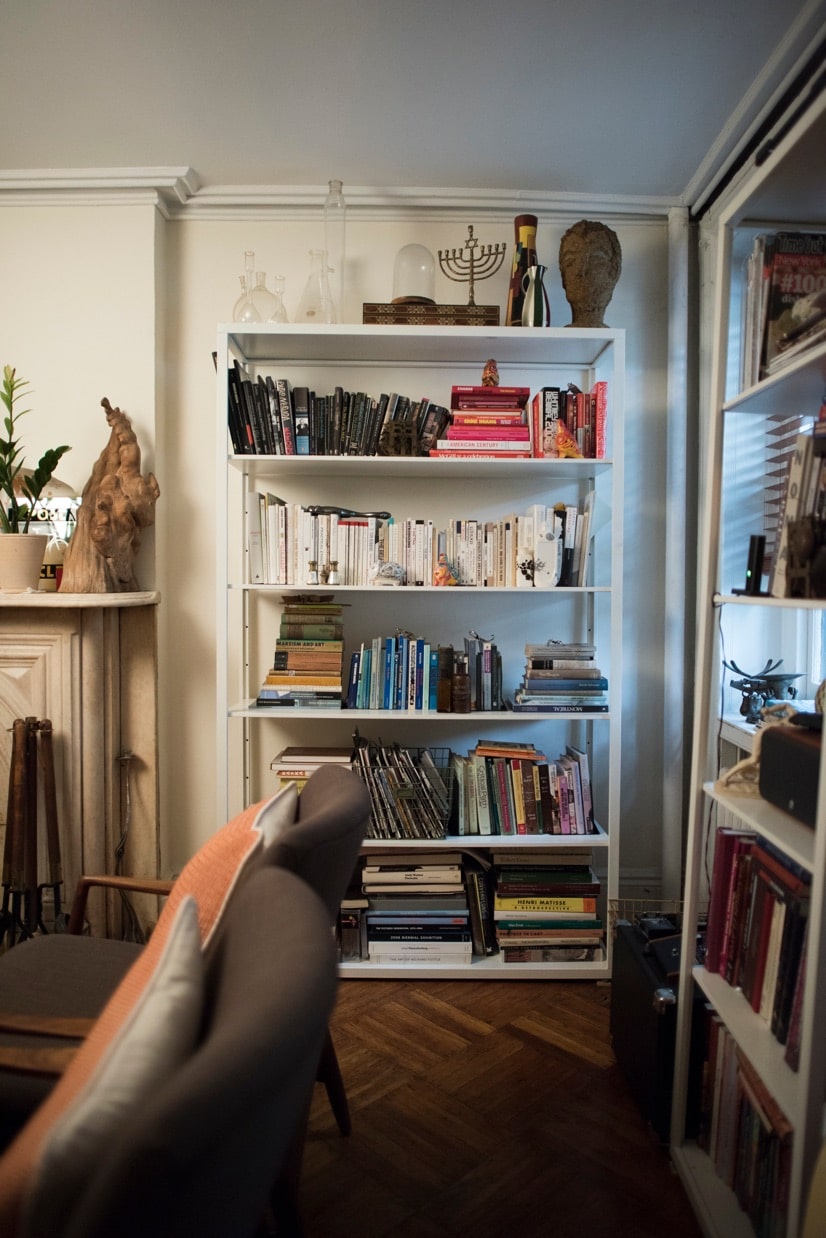
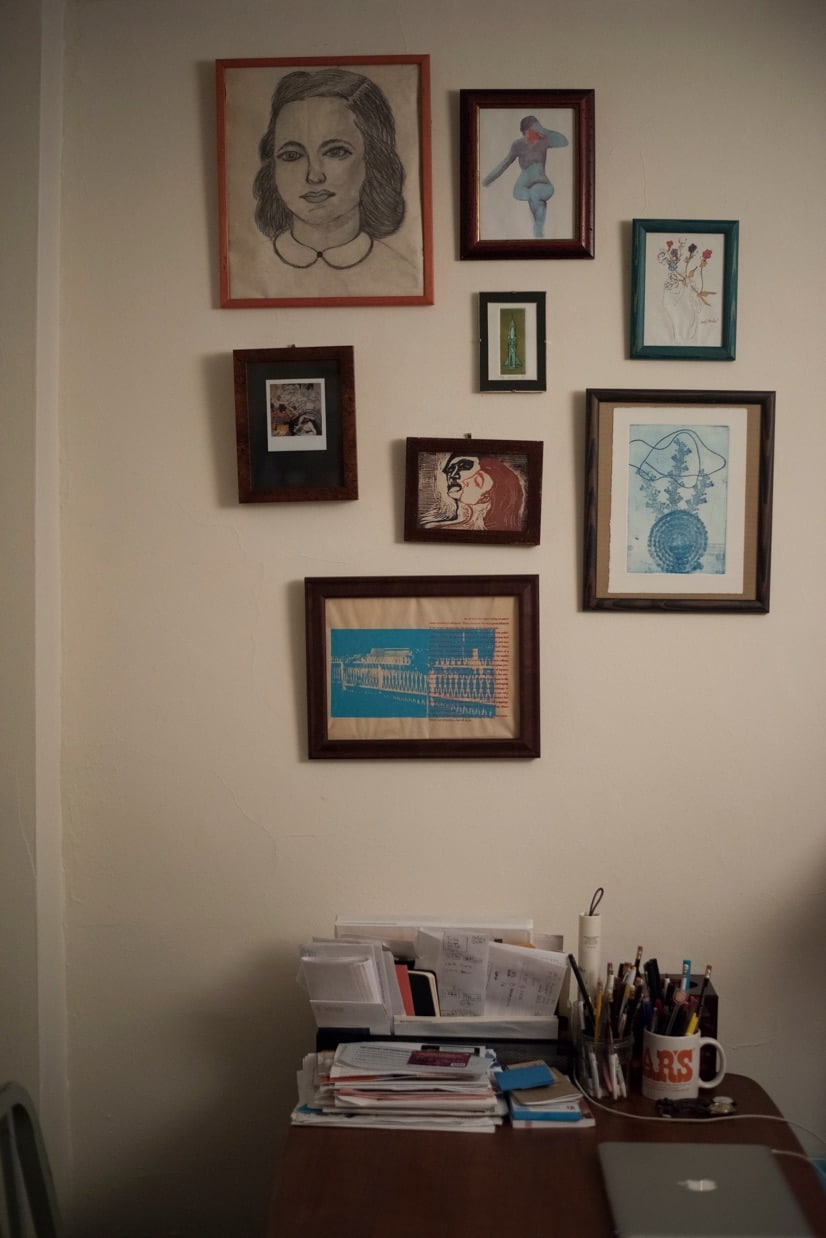
How does Judaism play into your daily life now?
The one thing that I took from my Jewish education was the common theme of caring for and helping others.
I don’t think of myself as an observant Jew. I was when I was growing up and maybe things will change when I have a family and I want to make sure certain values are instilled in my children, but I don’t think it necessarily needs to be through a Jewish lens. It’s far more comforting in life to believe without questioning than it is to wonder and be an asking person. Judaism is a religion that pushes you to question things, which is surprising given how indoctrinated some Jews seems to be.
My choose-your-own-adventure Judaism means that I eat whatever I want, but I care about where it came from and who I’m buying it from and whether it’s good for me and whether it’s been good for anybody along the supply chain. It means exhibiting empathy for people. You see someone who needs help, you offer help. Treating people like you would want to be treated yourself. These are such broad, big, human values that are applicable for anyone of any background, but it’s when I feel most Jewish.
What’s an immediate turnoff for you?
Lack of care for detail. Someone will be like, “No one’s going to see that, no one’s going to notice that, I don’t care.” I notice that. I see it. If even one person can notice a detail, then you should make absolutely sure that it’s fucking perfect. I really hate it when people go 99% of the way. Why not go all the way? You’ve put so much effort into the first 99% of getting this done and then you just let it sit there unfinished?
What’s your favorite meal?
My favorite meals are when I’m on vacation and I get to eat something that’s uniquely specific to that place. Beautiful fine dining at a restaurant in New York doesn’t take a lot of effort, it just takes a little bit of foresight and money. When you’re in Lisbon and you’re eating this steak sandwich that you’ve been dreaming about because you heard that it’s perfection and finally you’re there and it’s unbelievable, that’s a real sense of accomplishment.
What’s something you’re curious about these days?
The thing that gets me going now is business management, which I know sounds really dry, but it’s primarily about human emotion and how we react to things and the most intelligent way of organizing companies and getting people to excel at their jobs and love what they do. I can’t do it without them and they can’t do it without me. They rely on me for job security and I rely on them for execution – it’s a symbiotic relationship. Entrepreneurs and business managers who don’t recognize the value of their teams are the ones that I respect the least.
Favorite Jewish holiday and why?
It’s a no brainer. Hanukkah, ‘cuz you get gifts, right?
Favorite Jew?
The Jew that comes up most in conversation is probably Jerry Seinfeld, so I’m gonna roll with him.
Photos by Tim Gibson.
Thank you for visiting Arq!
Arq is no longer publishing new content. We hope you'll enjoy our archived posts.
